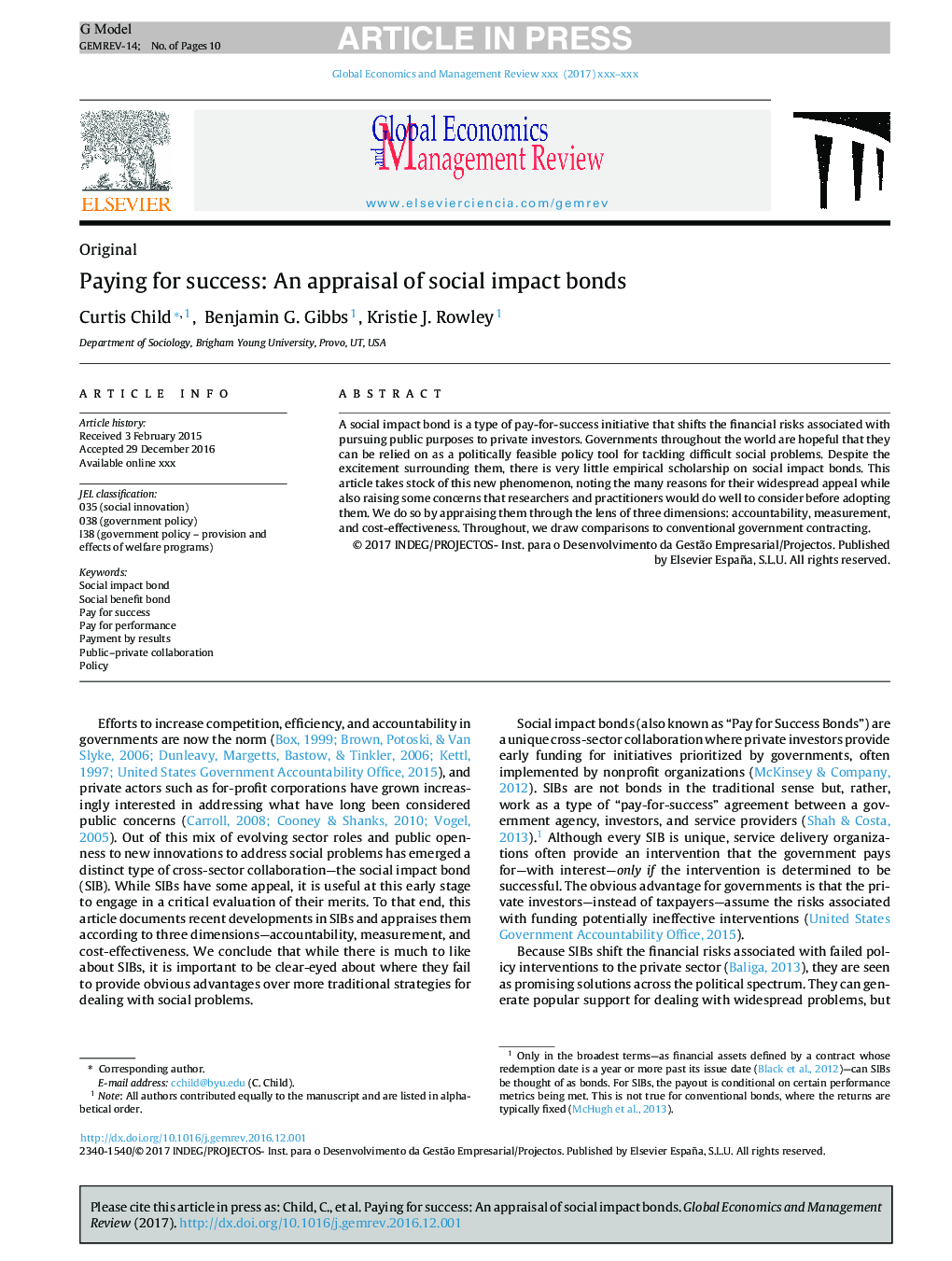| Article ID | Journal | Published Year | Pages | File Type |
|---|---|---|---|---|
| 7407866 | Global Economics and Management Review | 2016 | 10 Pages |
Abstract
A social impact bond is a type of pay-for-success initiative that shifts the financial risks associated with pursuing public purposes to private investors. Governments throughout the world are hopeful that they can be relied on as a politically feasible policy tool for tackling difficult social problems. Despite the excitement surrounding them, there is very little empirical scholarship on social impact bonds. This article takes stock of this new phenomenon, noting the many reasons for their widespread appeal while also raising some concerns that researchers and practitioners would do well to consider before adopting them. We do so by appraising them through the lens of three dimensions: accountability, measurement, and cost-effectiveness. Throughout, we draw comparisons to conventional government contracting.
Related Topics
Social Sciences and Humanities
Economics, Econometrics and Finance
Economics, Econometrics and Finance (General)
Authors
Curtis Child, Benjamin G. Gibbs, Kristie J. Rowley,
